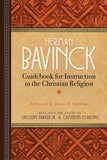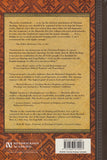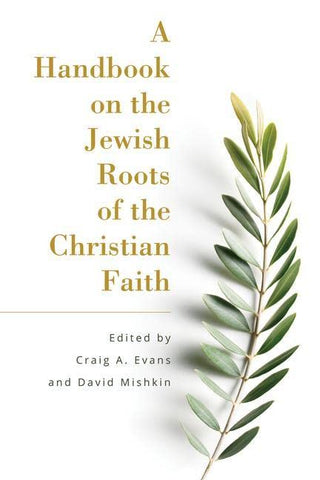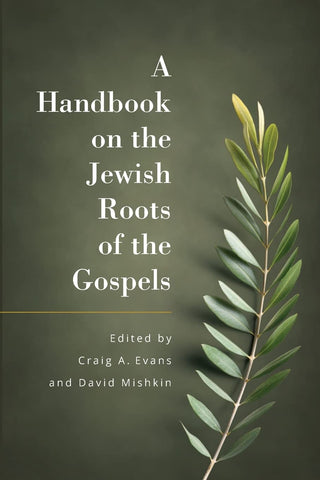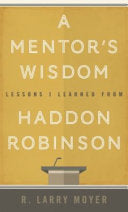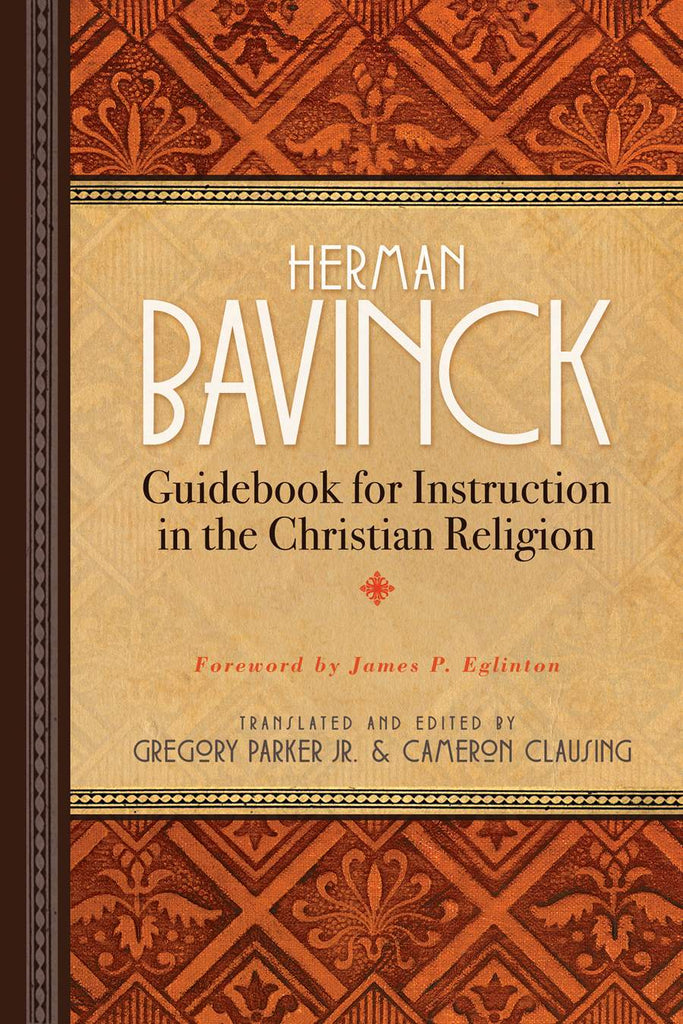
Guidebook for Instruction in the Christian Religion HB
| Product Details | |
|---|---|
| Publisher | Hendrickson |
| Year | |
| ISBN | 9781683072997 |
“In writing this Guidebook,” Bavinck says in his preface, “I had in mind, the pupils in the highest classes of our Christian gymnasium, public schools, in the education of teachers, and in normal schools, etc. and moreover those who desire to understand the main content of our Christian, Reformed confession of faith through a not too comprehensive or expensive book.”
Herman Bavinck completed Guidebook for Instruction in the Christian Religion in 1913 and reprinted it in the Netherlands in 1931. He originally intended it for high school students and Christians of every confession. Bavinck’s goal was to make Christians more familiar with the rich, deep thoughts of Scripture as universally expressed in the Christian faith.
Guidebook for Instruction in the Christian Religion is an introductory systematic theology by one of the foremost theologians of the past century. Alongside The Sacrifice of Praise, this is Bavinck at his best doing catechetical theology. To this end, Bavinck sets off to explain in a simplified manner the main contents of the Christian religion, even giving it a title that is a tip of the hat to John Calvin’s Institute of the Christian Religion. While Bavinck’s lengthy Reformed Dogmatics is an academic work, Guidebook for Instruction serves a more egalitarian aim. It is a theological guide for the everyday person in the pew. In this one—and much shorter—volume, Bavinck walks Christian readers through all the major topics covered in Reformed Dogmatics with theological depth and insight.
“In addition to English translations of Bavinck’s Dogmatics and Ethics for academics and pastors and Bavinck’s Wonderful Works of God for the college-educated, we now have this competently translated and richly annotated Guidebook prepared for high school students. Arguably, as an entry-level introduction to the riches of the Reformed Christian faith, it may be the most important of the three. It is also a wonderful introduction to a great modern-era Reformed theologian; a tribute to the longing of a learned professor to pass on the riches of the faith to the next generation at an early stage in their religious development—and it is timely! In his preface, Bavinck describes conditions in the educational world of his day that bear eerie resemblance to ours. The publication of this volume deserves three cheers.” —
John Bolt, Jean and Kenneth Baker Professor of Systematic Theology Emeritus, Calvin Theological Seminary
“More and more, academic theologians are trying to write books that are welcoming and readable for regular Christians who want to grow in their knowledge of God. Over a century ago, Herman Bavinck resolved to do this as well, offering an accessible, ecumenical, and condensed version of his greater work Reformed Dogmatics. Particularly, Bavinck had curious young adults in mind for his audience. Guidebook for the Instruction in the Christian Religion is a great introduction into Bavinck’s theology for the whole church. Rich theology is not just for academics; it’s for all God’s people! I’m thankful for Cameron Clausing and Greg Parker’s work on this translation into the English language to offer to a new generation.” —
Aimee Byrd, author of The Sexual Reformation and Recovering from Biblical Manhood and Womanhood
“Continuing the Bavinck renaissance, this new English translation of his Guidebook is a welcome treasure. Geared toward a broader audience than his Reformed Dogmatics, this work is just as faithful to God’s word but more accessible. The opening sentence tells all: ‘The highest good of man is God and God alone.’ The introduction is a great overview, and the clarity of the translation conveys the beauty as well as truth of Bavinck’s prose. This book is ideal for personal and group study.” —
Michael Horton, J. Gresham Machen Professor of Systematic Theology and Apologetics Westminster Seminary California
“Herman Bavinck’s Guidebook for Instruction in the Christian Religion is by far his shortest articulation of Christian theology, but in no way should it be regarded as less rich than his longer works. Indeed, since this was written later than either his full dogmatics (for the academic) or his Magnalia Dei (for collegeeducated professionals), in some ways the Guidebook represents his mature thought. It is also his presentation of the Christian faith to the widest audience, since it was written for, what we would today in the United States call, the high school student. I’ve been working through it, and it is a delight to see so much profound learning made so accessible. I can’t recommend his work highly enough.” —
Tim Keller, Redeemer City to City
“Gregory Parker Jr. and Cameron Clausing are to be sincerely commended for bringing Bavinck’s Guidebook to us in clear, modern English. In many ways, this book shows Bavinck at his best: lofty yet approachable, profound yet clear. As you read this new translation from one of the more formidable orthodox theologians in the Reformed tradition, you will no doubt find that Bavinck taught theology out of an academic context, but he did so always for the church—and for every church member too.” —
Zachary Purvis, Lecturer of Church History Edinburgh Theological Seminary
“Herman Bavinck’s reputation as one of the twentieth century’s leading Reformed academic theologians is now well established. In the English-speaking world, he is beginning to receive the recognition he deserves as a gifted catechist thanks to the translation of volumes such as the present one. Bavinck’s Guidebook for Instruction in the Christian Religion is a profoundly simple and simply profound introduction to the catholic faith of the Reformed churches. Parker and Clausing’s translation is elegant and easy to read, assuring its usefulness to Bavinck’s intended audience (high school students). At the same time, the book’s scholarly apparatus guarantees its usefulness to the growing field of Bavinck studies. My sincere hope is that this edition will be widely purchased, widely read, and widely taught in Christian churches, schools, and homes.” —
Scott Swain, President James Woodrow Hassell Professor of Systematic Theology Reformed Theological Seminary, Orlando

